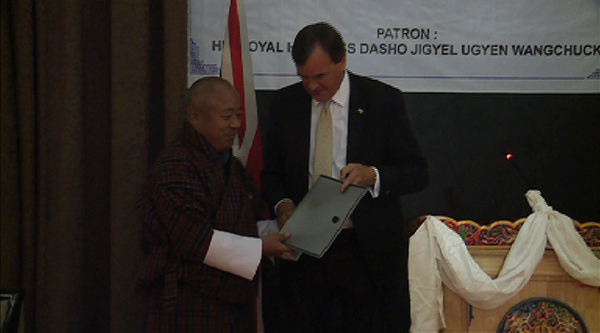 To strengthen Bhutan’s capacity to deal with the worldwide problem of antibiotic-resistant diseases, the British Government launched its Fleming Fund Agreement with Bhutan yesterday.
To strengthen Bhutan’s capacity to deal with the worldwide problem of antibiotic-resistant diseases, the British Government launched its Fleming Fund Agreement with Bhutan yesterday.
The Fleming Fund is an initiative of the British Government to help address the growing and serious global problem of drug-resistant diseases.
The first Fleming Fund country grant worth 2.8 M pound will start from next month.
The project will significantly strengthen Bhutan’s laboratory and human resource facilities to allow the identification and reporting of drug-resistant diseases.
The grant will be given to the Ministries of Health and Agriculture. The Ministry of Agriculture is involved because antibiotics are often used to treat cattle which can result in antibiotics accidentally entering the food chain.
At the human level, overuse and misuse of antibiotics are a major health challenge. And in Bhutan multi-drug resistant tuberculosis is becoming more prevalent.
“Each year approximately 700, 000 people around the world die due to drug-resistant infections including tuberculosis, pneumonia and malaria. And no action is taken. It has been estimated that drug-resistant infections will kill 10 million people a year by 2050 and majority of those in low-income countries,” Sir Dominic Asquith, the British Commissioner to India, said.
“The Fleming Fund represents a step change in financial commitment from the UK and in terms of partnership to support antimicrobial resistance surveillance and I hope that this is only the beginning to our ability to get good quality data into the hands of decision-makers.”
Apart from strengthening and developing laboratory facilities, the project will also include a training element. Seven Bhutanese will be trained under the Fleming Fellowship Scheme to equip them with the capability and networks to address antimicrobial resistance.
The fund will allow Bhutan to make a contribution to finding solutions to the rapidly growing world problem.





